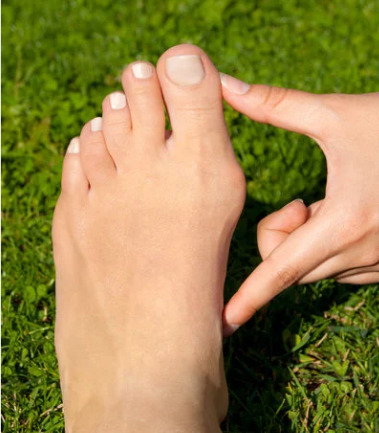Toe-Tapping Grades of Bunion! It’s Guy Fawkes Night!
Remember, remember, the 5th of November – a night where history with fireworks illuminating the night skies none other than Guy Fawkes Day!
Tonight we might be standing for long hours watching out door displays and for those of us with bunions even simple standing can become somewhat awkward.
You are not alone. Today we discuss something you may not be familiar with but
Bunion gradings. A Bunion, medically known as a hallux valgus is deformities of the joint connecting the big toe to the foot. It is a common foot problem in which a characteristic bump develops on the inner edge of the foot just below the big toe.
Bunions tend to run in families and may be one of many problems caused by an underlying foot defect. As we get older and our feet start to spread, the problem tends to worsen, triggering pain especially when walking, causing increased stiffness at the base of the toe and mechanical aberrations.
They are graded based on their severity, often using a scale that takes into account the angle of deviation between the big toe and the first metatarsal bone.
Here we present the Bunion Gradings:
- Grade 1 (Mild): The bunion is smaller in size and usually causes minor discomfort. Conservative treatments like wearing wider shoes and using orthotic inserts are typically effective at this stage.
- Grade 2 (Moderate): The bunion is larger, causing more noticeable deformity and discomfort. The patient may experience pain, swelling and redness.
- Grade 3 (Severe): The deformity is significant, causing considerable pain and limiting the movement of the big toe. At this stage, surgery might be considered to realign the joint and correct the deformity.
- Grade 4 (Critical): The deformity is severe, leading to chronic pain, difficulty in finding shoes that fit and significant limitations in daily activities. Surgery is often the recommended treatment at this stage to provide relief and improve foot function.
Bunion Prevention
- Make sure your shoes are the right size and fit
- Avoid wearing high heels every day (or retire them altogether)
- Rest your feet
- Do bunion stretches and exercises to strengthen your feet
- Monitor your feet for changes
Whether you’re trying to prevent your bunions from getting worse or trying to prevent them altogether, one of the best places to start is with a good pair of shoes. The right pair of shoes can help your feet stay active and protect them from painful foot conditions, bunions included.
Treatments
- Bunion Pads and Splints: Bunion pads and splints can help cushion the bunion and align the toe into a more normal position.
- Orthotic Inserts: Custom-made shoe inserts (orthotics) can provide support and reduce bunion pain.
- Toe Exercises: Specific exercises can help maintain joint mobility and prevent stiffness.
- Weight Management: Maintaining a healthy weight can reduce pressure on the feet and slow down bunion progression.
- Bunionectomy: Surgical removal of the bunion is often considered if conservative treatments fail to provide relief. There are various types of bunion surgery, including osteotomy (bone cut and realignment), arthrodesis (joint fusion) and exostectomy (removing the bump).
- Implant Insertion: In some surgical procedures, small implants can be inserted to stabilize the joint and prevent the bunion from recurring.
Fact: Painless doesn’t mean harmless! Some bunions are painless, especially in the early stages.
Did you learn a lot about bunion gradings? Are you suffering from any foot condition? At The Chelsea Clinic, we can help. One of our podiatrist can assist and then recommend what treatments are best to get you back on track. Podiatrist South Kensington
Schedule an appointment here or you may call us at +44 (0) 207 101 4000.
We hope you have a feetastic day!
-The Chelsea Clinic and Team




